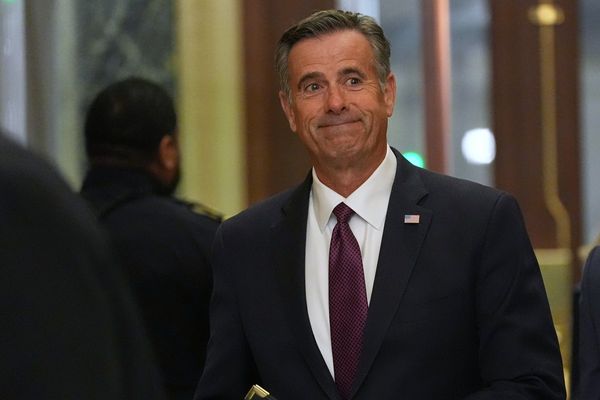
The Covid pandemic disrupted the “very fabric of childhood”, the UK inquiry has heard, on the first day of a four-week session devoted to its impact on children and young people.
Clair Dobbin KC, counsel to the inquiry, said in her opening submission on Monday that some of the evidence drawn from the 18,000 stories and 400 targeted interviews would be “hard to listen to”.
Some children lost parents, grandparents and other loved ones to Covid. Some children died from Covid, while others continue to live with the “severe, and, for many, long-lasting” consequences of the pandemic.
Dobbin described the curtailment of play and the loss of all the normal rites of passage – birthdays, proms, exams – as well as the damage done to young people’s mental health and their ability to make and sustain friendships.
She also spoke about children who suffered “grievous” harm at the hands of the people who were meant to care for them, when they were told to stay at home and lost the protection that schools usually offer.
Some young people were exposed to violent pornography and other harms as their lives rapidly moved online, while many struggled to access online lessons and ended up spending most of the day gaming instead of learning.
One described “sitting there with no school, playing [the video game] Animal Crossing for, like, six months”. Another said they played Roblox online for up to 19 hours a day.
Dobbin quoted one child as saying: “People would answer the remote lesson call in bed, people would be in science third lesson, and would literally have the camera off and would be posting on their Instagram stories or their Snapchat stories, literally them watching The Only Way is Essex.”
She said said: “[Covid] deprived children of much of the fun that makes a childhood: birthday parties, playing sport, proms, school trips, holidays; all everyday aspects of what it means to be a child but which comprise the very fabric of childhood.”
The inquiry heard the decision to close schools “had ramifications which are difficult to overstate”. The Department for Education (DfE) had undertaken zero contingency planning for school closures before lockdown was declared in March 2020.
“In England, evidence that the [DfE] did not start planning for the closure of schools until after 16 March 2020 is a cause for alarm,” Dobbin told the inquiry.
She said Jonathan Slater, then permanent secretary to the DfE, had provided evidence that between January and 16 March 2020, the department’s contingency plans were “premised on the assumption that schools and other educational settings would remain open. And according to him that was in keeping with the government’s overall approach to pandemic preparedness at the time.”
Evidence from Gavin Williamson, the education secretary at the time, agreed, but on 17 March there seems to have been a sudden change of direction. Dobbin said: “[Williamson] explains in his words that there’s a discombobulating 24-hour sea change from keeping schools open on 16 March, to discussions about closing schools on 17 March.”
On 18 March, schools were ordered to close. Dobbin added: “[Williamson] did not ask DfE officials to prepare an assessment of the impact of school closures because school closures had not been recommended and No 10 officials had not commissioned this advice from the DfE either.”
The inquiry was told that the then prime minister Boris Johnson took issue with Williamson’s version of events in his statement to the inquiry, and said the DfE was aware of the possibility of closing schools.
“[Johnson’s] evidence suggests – but it’s a matter to be explored with him – that he thought that planning for school closures had been ongoing,” Dobbin said. She added: “It’s my respectful submission that it’s significant that there should be a dispute about whether planning for so seismic an event existed … and perhaps alarming is the suggestion that it was not for the DfE to instigate its own planning for school closures but to wait for it to be commissioned.”
In her opening comments to the reconvened inquiry the chair, Heather Hallett, said the pandemic’s impact on children and young people was “severe and, for many, long-lasting”, as they missed educational opportunities, social interaction and for the most at-risk they lost protection from abuse.
An impact film shown at the start of proceedings detailed some of the children’s stories, voiced by adults to protect their identities. One contributor said her friend had died, another lost 12 kilos while suffering from Covid, while a third had to be put on a ventilator.
A single parent described the challenge of trying to home educate and care for three children all at different stages of their education. “In the end I just said we’re not doing it,” she said, adding: “Being confined, just us in that house, was hell.”
Another mother said her son had been out of school since February 2022 due to long Covid. “Our family life completely stopped. It’s a huge worry to us how his life will go. How he will manage to look after himself. We should not sacrifice children. Children are the future.”
The inquiry continues on Tuesday.
• This article was amended on 30 September 2025 to clarify that a child who has been out of school since February 2022 has been absent due to long Covid.







